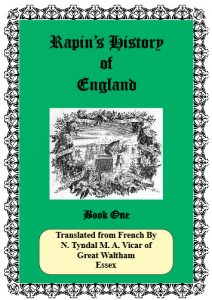AT a period when the human intellect seems to have attained nearly the apex of its power, and the utmost extent of its expansion; when the stores of literature and science are no longer confined to the groves of the academy, to the cells of the cloyster, to the forums of justice, or to the walls of the senate, it would operate but feebly in favour of an historical work, were it to be introduced by an elaborate disquisition on the general utility, or particular advantages, to be derived from the perusal, or study of history.
It is a trite remark, at least as old as the time of Dionysius, that history may be regarded as that species of philosophy which teaches by example; and it is equally true, that, while it adds to our own stock of experience an immense accumulation of the experience of others, it furnishes innumerable tests, by which we may verify all the precepts of morality and prudence. History is, indeed, the proper repository of all those facts which best illustrate the general nature of man. With the happiest facility it opens to us the springs of human affairs; it marks the rise, progress, and decay, of empires; it develops the reciprocal influence of government and national manners; it explains the factitious passions, and artificial manners, of social life; and, in all the vivid colouring of nature, it pourtravs, with a firm and steady hand, the strong and distinguishing traits of individual character.
lf these remarks be just, with respect to history at large, philosophically considered—and their veracity is too obvious to be questioned—how much more forcibly must they apply to the immediate history of our own country? Descending lower upon the scale, history may there be said also to account for those things in common speech, and in the formalities of common life, which are not otherwise to be understood; yet, without a knowledge of which, we must remain infants in society, and strangers in whatsoever part of the world our lot may have cast us; for, in the interrogative language of the poet,

